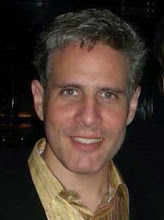Arun Kapur and the Learn Today company organized a conference yesterday on the Textbook Culture in India. Over 100 principals and educators from the NCR area came to hear about a dozen people talk about their perspectives on the textbook and its role in education.
After an elucidating introduction by Arun (hoping to see his talk posted online!), Krishna Kumar, Director of the NCERT spoke about some of the challenges his organization faces not just in creating textbooks, but in inspiring innovation. Following him, MM Pant, Director of Planet Edu India, spoke about the death of the textbook as we know it, especially in a highly networked world--that the textbook can be one tool, but that learning now has to take advantage of the power of technology.
Interestingly, both Krishna Kumar and MM Pant concurred that the main challenge lies not in the creation of new textbooks, but with the teachers who have to implement them. Mr. Kumar expressed his regret that we are no longer attracting good teachers into the field of education, listing sundry reasons why, including poor pay. Mr. Pant agreed with Mr. Kumar to an extent, offering a more optimistic perspective--that indeed teachers might not be up to the mark at present, but that education will soon see a rebirth, where teachers have to become celebrities along the lines of Bollywood heros. For this bit of vision he received a generous round of applause.
As someone who has created over 70 textbooks (which I feel are highly innovative), I can offer dozens of stories of how teachers have, more often than not, been the point of limitation.
What I have come to learn this:
Problem: Not everyone has an Educative Nature. We must do a better job of identifying those that do, and guiding them into the teaching profession. The problem is that to date, there has not been a clear model or tool to help people do this.
And here are my solutions to the problem:
Solution A: My Multiple Natures model (a corollary to Gardner's Multiple Intelligences theory), which identifies 9 human tendencies (Protective, Educative, Administrative, Creative, Healing, Entertaining, Providing, Entrepreneurial, and Adventurous). A brief explanation of the theory is here: www.multiplenatures.com. This model can help us more easily differentiate those who have a strong Educative Nature from those who do not.
Solution B:We have created a free online test at www.whatsmynature.com that helps people (especially students) identify their Multiple Natures in just 7 minutes. The site then makes appropriate career suggestions (including many professions in the teaching line).
My belief is that future dynamic teachers already exist. The problem is that they themselves might not realize their potential as educators, or that their parents are unwittingly pushing them into other professions. My hope is that the Multiple Natures model and the What's My Nature test can help us find these potential super-teachers, groom them, and get them into our classrooms for the benefit of the future generation of learners.
Thursday, December 11, 2008
Subscribe to:
Post Comments (Atom)




No comments:
Post a Comment